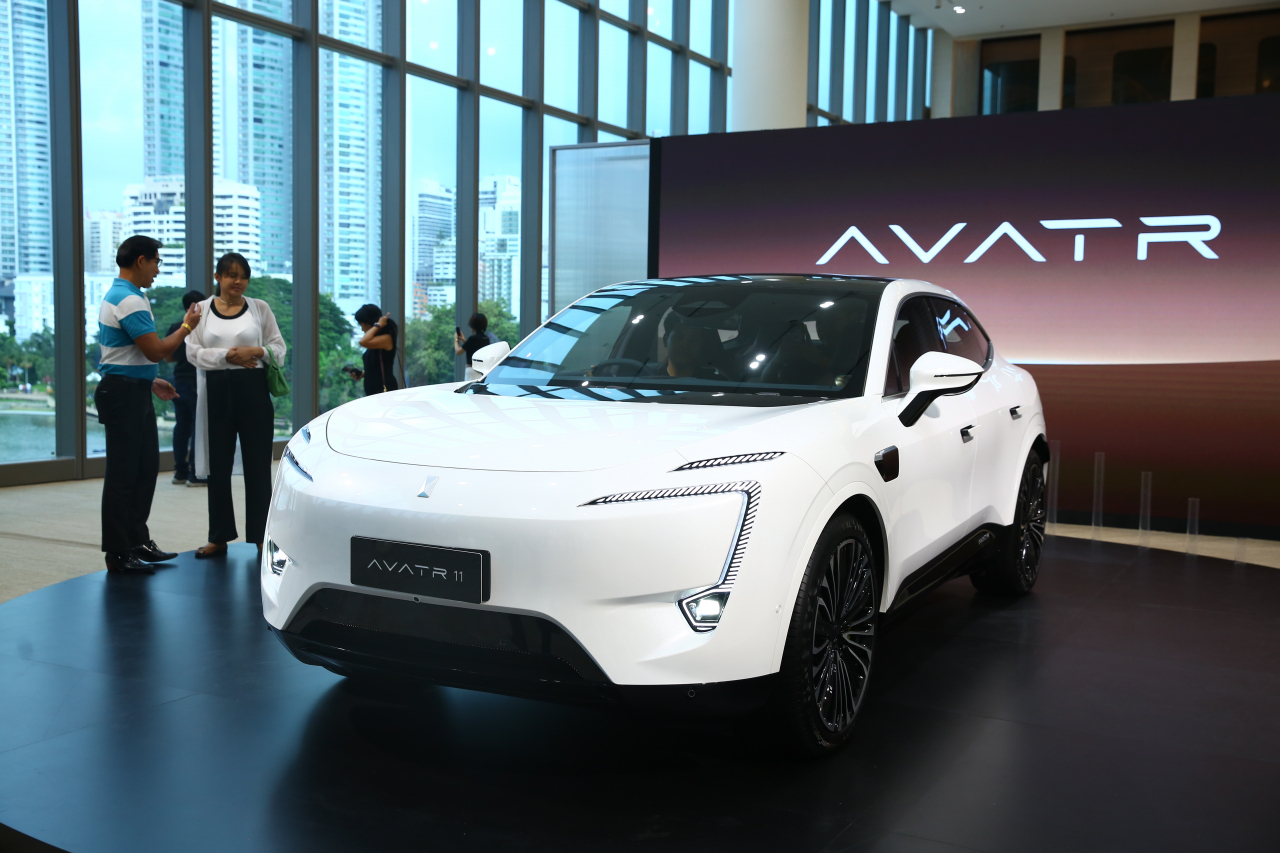
 |
| An AVATR 11 model car of Chinese automaker Changan Automobile is seen in Bangkok, Thailand, on Sept. 17. (Xinhua) |
The US Department of Commerce on Monday proposed a rule to prohibit the import or sale of connected vehicles integrating certain software and hardware with a "nexus" to China or Russia, citing national security concerns.
The department's Bureau of Industry and Security (BIS) published the proposed rule amid worries that cars equipped with cameras, sensors, software, and other components manufactured in China could be used to gather sensitive data on drivers, passengers, and US infrastructure.
The rule may prompt South Korean automakers to readjust their supply chains if they use prohibited software and components from China. However, the measure would also hinder potential Chinese competitors from entering the US market, observers said.
The prohibitions on software would take effect for the 2027 model year, while those on hardware would begin for the 2030 model year or on January 1, 2029, for units without a model year, the department said.
The rule focuses on hardware and software integrated into the Vehicle Connectivity System (VCS) and software in the Automated Driving System (ADS).
The VCS includes systems that allow the vehicle to communicate externally, such as telematics control units, Bluetooth, cellular, satellite, and Wi-Fi modules. The ADS consists of components enabling highly autonomous vehicles to operate without a driver behind the wheel.
The department called the proposed rule a "proactive" measure to protect national security, noting that certain technologies from China or Russia pose an "undue" risk to US critical infrastructure and connected vehicle users.
"Cars today have cameras, microphones, GPS tracking, and other technologies connected to the internet. It doesn't take much imagination to understand how a foreign adversary with access to this information could pose a serious risk to both our national security and the privacy of US citizens," Commerce Secretary Gina Raimondo said in a press release.
"To address these national security concerns, the Commerce Department is taking targeted, proactive steps to keep PRC and Russian-manufactured technologies off American roads," she added, referring to China by its official name, the People's Republic of China.
National Security Advisor Jake Sullivan described the rule as "strong action" to protect the American people, US critical infrastructure, and automotive supply chains from national security risks associated with connected vehicles.
"While connected vehicles yield many benefits, the data security and cybersecurity risks posed by software and hardware components sourced from the PRC and other countries of concern are equally clear, and we will continue to take necessary steps to mitigate these risks and get out ahead of the problem," he said.
The proposed rule would apply to all wheeled on-road vehicles, including cars, trucks, and buses, but would exclude vehicles not used on public roads, such as agricultural or mining vehicles.
It would also prohibit manufacturers with ties to China or Russia from selling connected vehicles with VCS hardware or software, or ADS software, in the US, even if the vehicle was made domestically.
The rule will be finalized after a public comment period.
In a statement, John Bozzella, president and CEO of the Alliance for Automotive Innovation (AAI), noted that "very little" technology in today's connected vehicle supply chain comes from China, but said the proposed rule will require automakers to find alternate suppliers in some cases.
"I've said this in other contexts, but it applies here too: you can't just flip a switch and change the world's most complex supply chain overnight. It takes time," Bozzella said.
"The lead time included in the proposed rule will allow some auto manufacturers to make the required transition but may be too short for others."
AAI also includes South Korean companies like Hyundai Motor Co.
In late April, Seoul raised concerns from the South Korean automotive industry over the US' planned rule on connected vehicles. Seoul expressed hopes that the US will provide a "precise" definition of connected vehicles, noting that the current US definition is "excessively broad." (Yonhap)









